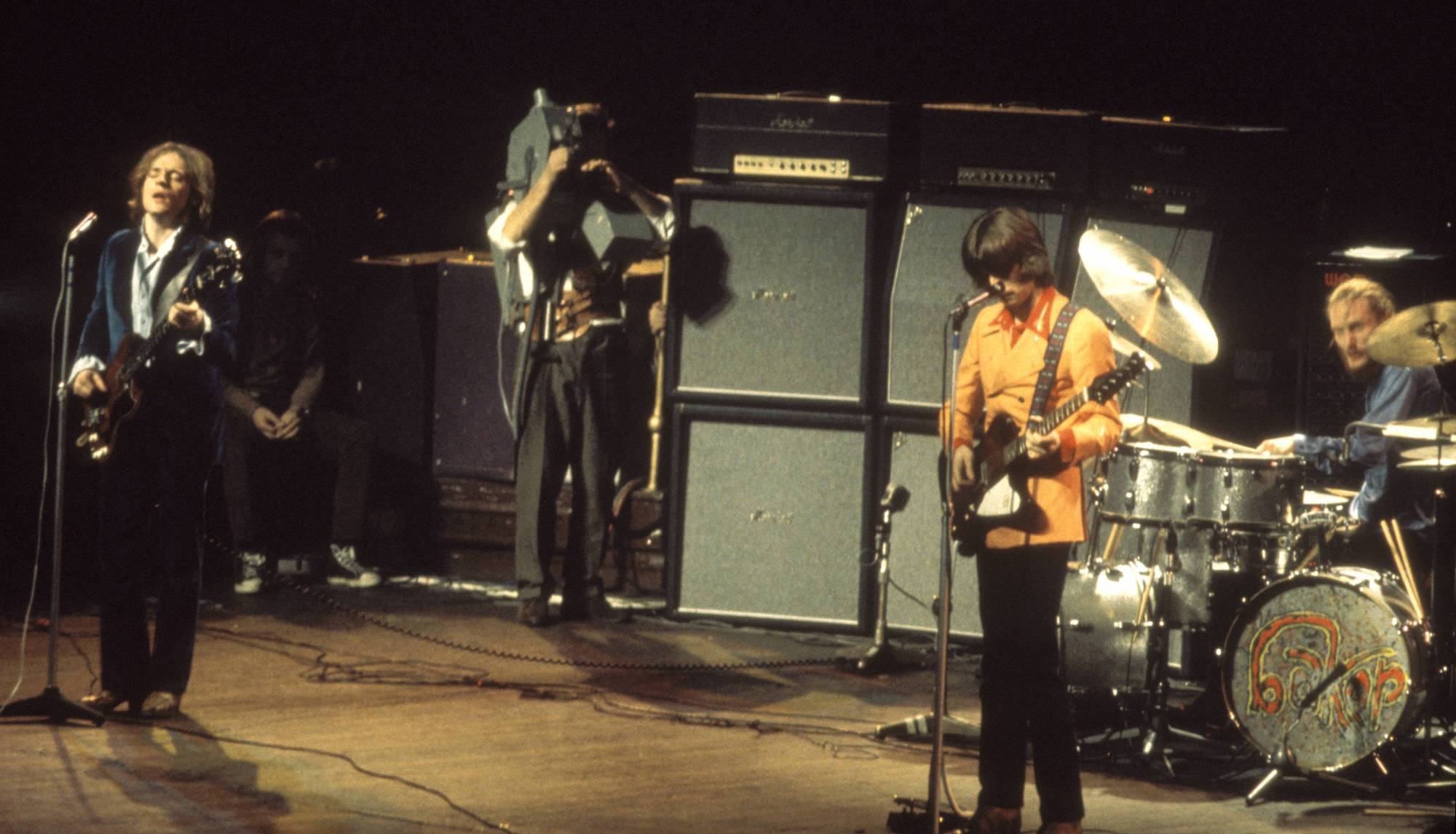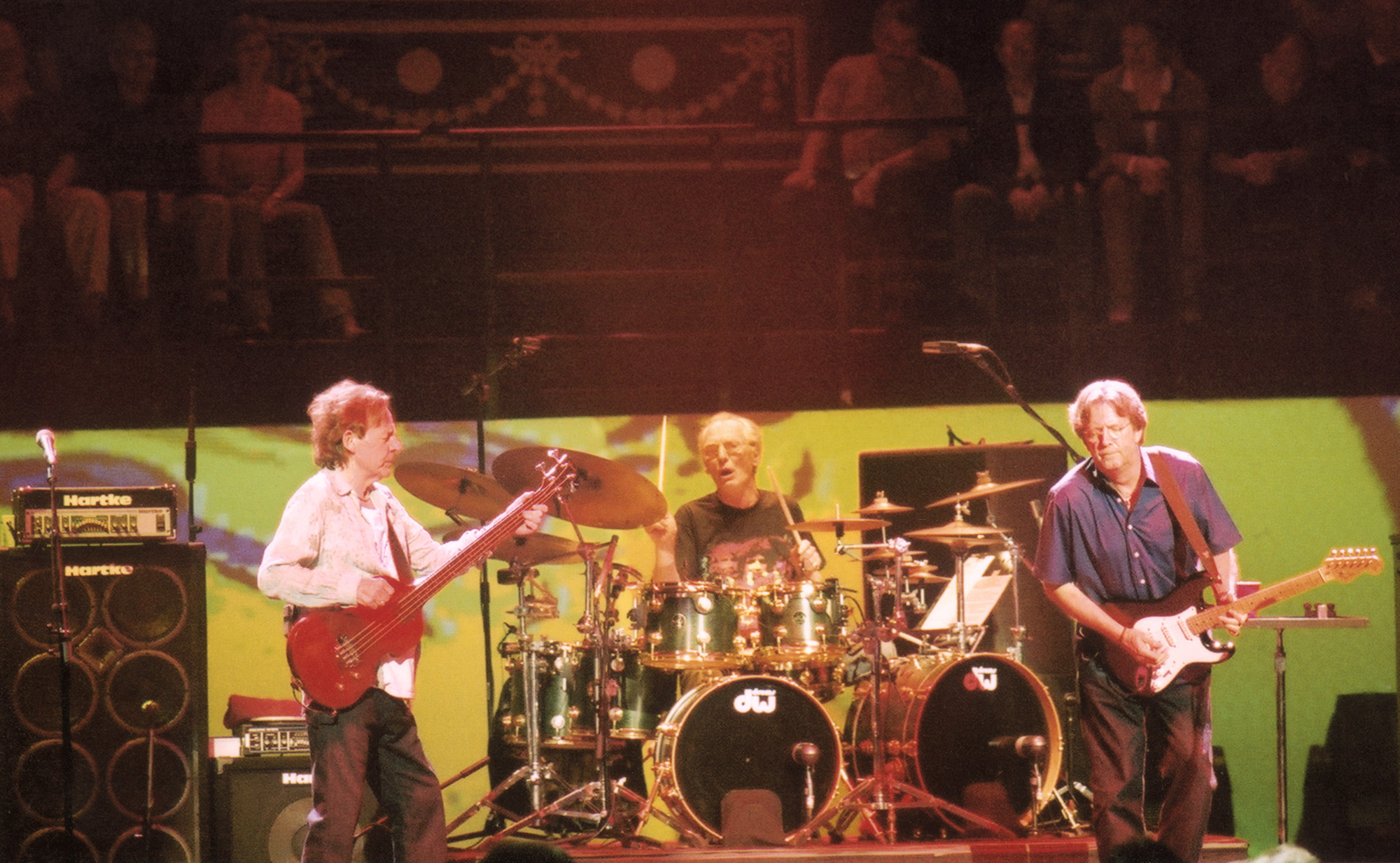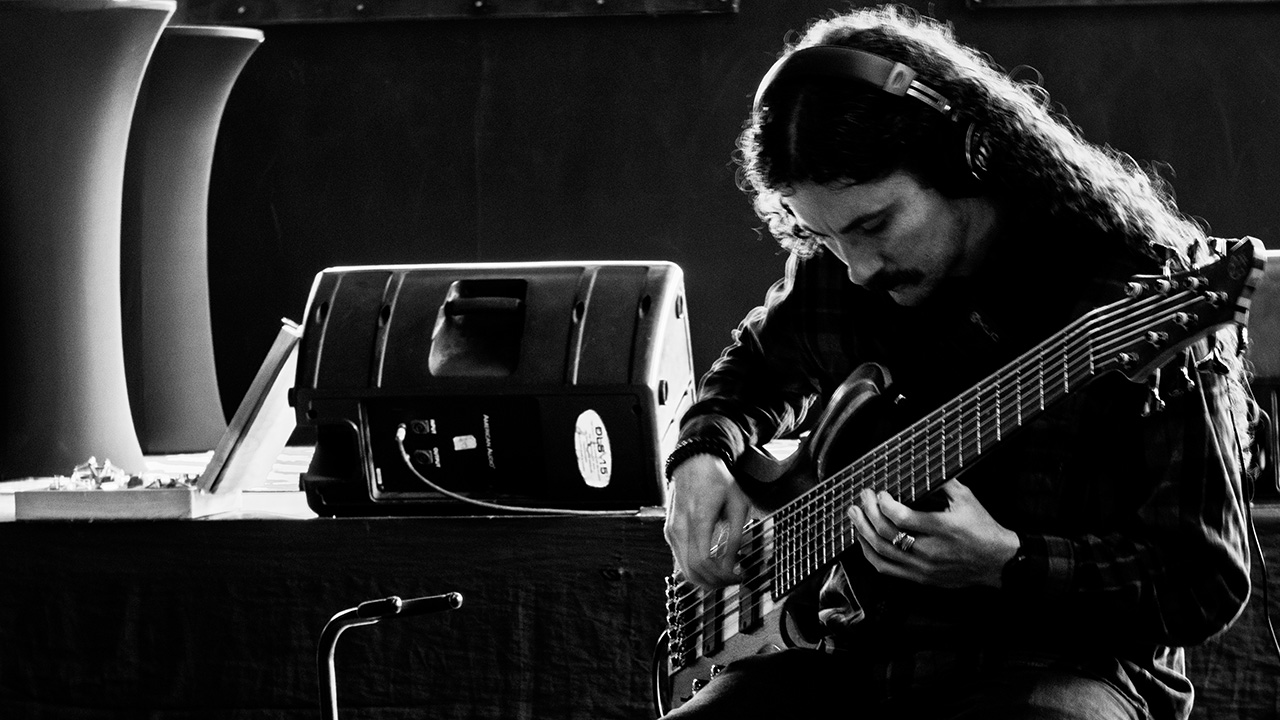“There was one gig where Eric and I stopped playing for two choruses. Jack didn’t even know”: Cream were one of the loudest rock bands of their time – but the excessive volume tore the band apart
During Cream's late '60s heyday, and again during their brief reunion in 2005, drummer Ginger Baker felt that both his – and even Eric Clapton's – contributions were often drowned out by bandmate Jack Bruce's

While never setting any ‘loudest concert’ world records, Cream were undoubtedly one of the most deafening rock bands of their day, awing onlookers with Marshall amp stacks at a time when the term ‘heavy metal’ meant, well, literal heavy metal.
During their incredibly brief run – barely two-and-a-half years, from 1966 to late 1968 – Cream essentially invented the concept of the rock power trio, while injecting an improvisational, free-form approach to blues standards that helped invent the ‘blues-rock’ genre as we know and understand it today.
Featuring the titanic rhythm section of jazz/blues veterans Jack Bruce on bass and Ginger Baker on drums, and, of course, Eric Clapton on guitar, Cream featured three virtuosos who, let's face it, weren't shy about demonstrating just how deep their talents ran. Inevitably, with this mindset, ego was a factor from the beginning.
Baker and Bruce, in particular, never had a particularly easy relationship – Clapton once said that the two got into a heated argument at the band's very first meeting, never mind their first session or live performance.
As the band grew increasingly successful, they were better placed to afford the sort of amplification they needed to fill the ever-larger venues they were playing in. Without Marshall stacks of his own, though, Baker began to grow impatient with what he saw as Clapton's, and especially Bruce's, excessive onstage volume.
“When we started in 1966, Eric and Jack had one Marshall each. Then it became a stack, then a double stack, and finally a triple stack,” the late drummer told Guitar World in 1997. “By 1968, I was just the poor bastard stuck in the middle of these incredible noise-making things. It was ridiculous.
“I used to get back to the hotel and my ears were roaring. That final year damaged my hearing. The incredible volume was one of the things that destroyed the band. Playing loud had nothing to do with music. There was, in fact, one gig where Eric and I stopped playing for two choruses. Jack didn’t even know. Standing in front of his triple stack of Marshalls, he was making so much noise he couldn’t tell.”
All the latest guitar news, interviews, lessons, reviews, deals and more, direct to your inbox!
It would be almost 40 years before Cream reunited, for a series of concerts in London, and later New York. Despite the light-years of advancement in amp and sound system tech in the intervening decades, the issue of volume reared its head once again during the band's reunion.
Asked in a 2006 interview why Cream passed on scheduling any more reunion gigs after their New York concerts in late 2005, Baker echoed his complaints about the band's final shows four decades prior.
“He [Bruce] shouted at me on stage, [and] turned his bass up so loud that he deafened me on the first gig,” Baker said.

Of course, though, there are two sides to every story. Speaking to Bass Player in 2005, Bruce justified the band's eardrum-flattening late '60s-era volume, saying, “On 90 percent of the gigs there was no proper PA or any monitoring, so the sound we got was the sound onstage. In order to generate the kind of excitement we wanted, we had to play really loud and create that sound with our gear.”
Though the interview was conducted prior to the New York shows during which Baker took issue with the late bassist's volume, Bruce said at the time, “Nowadays, sound technology is spectacular, and we aren't loud at all onstage.”
Just as he did on most topics during the band's heyday, Clapton, when reflecting on the band's live muscle, shied away from taking sides.
“I think we were one of the early heavy metal bands without knowing it,” the guitarist once said. “After we disbanded, Led Zeppelin filled the void.”
Those skeptical of Cream being classified as a proto heavy metal band need only turn to one of the pioneers of metal bass playing, Black Sabbath's Geezer Butler, who considered Bruce to be his greatest influence (appropriate, given Sunshine of Your Love ranks as one of the heaviest songs before Black Sabbath).
“I knew about Eric Clapton’s guitar playing because I’d followed him since he was in John Mayall’s Bluesbreakers. I was a guitarist at the time, so I’d never thought about bass – and Jack completely floored me,” Butler told Bass Player in a 2006 interview.
“I’d never seen anyone use bass as a sort of semi-lead instrument, while at the same time being perfectly linked to the drums and the guitar. The way he bent the notes and came down the fretboard was amazing, too.
“At the time,” Butler continued, “he was playing a Fender [Bass] VI, which I’d never seen before – they were terrible! I couldn’t even play one note on them, let alone the way he used to play them. He must have incredibly thin fingers, or something…”
Jackson is an Associate Editor at GuitarWorld.com. He’s been writing and editing stories about new gear, technique and guitar-driven music both old and new since 2014, and has also written extensively on the same topics for Guitar Player. Elsewhere, his album reviews and essays have appeared in Louder and Unrecorded. Though open to music of all kinds, his greatest love has always been indie, and everything that falls under its massive umbrella. To that end, you can find him on Twitter crowing about whatever great new guitar band you need to drop everything to hear right now.

